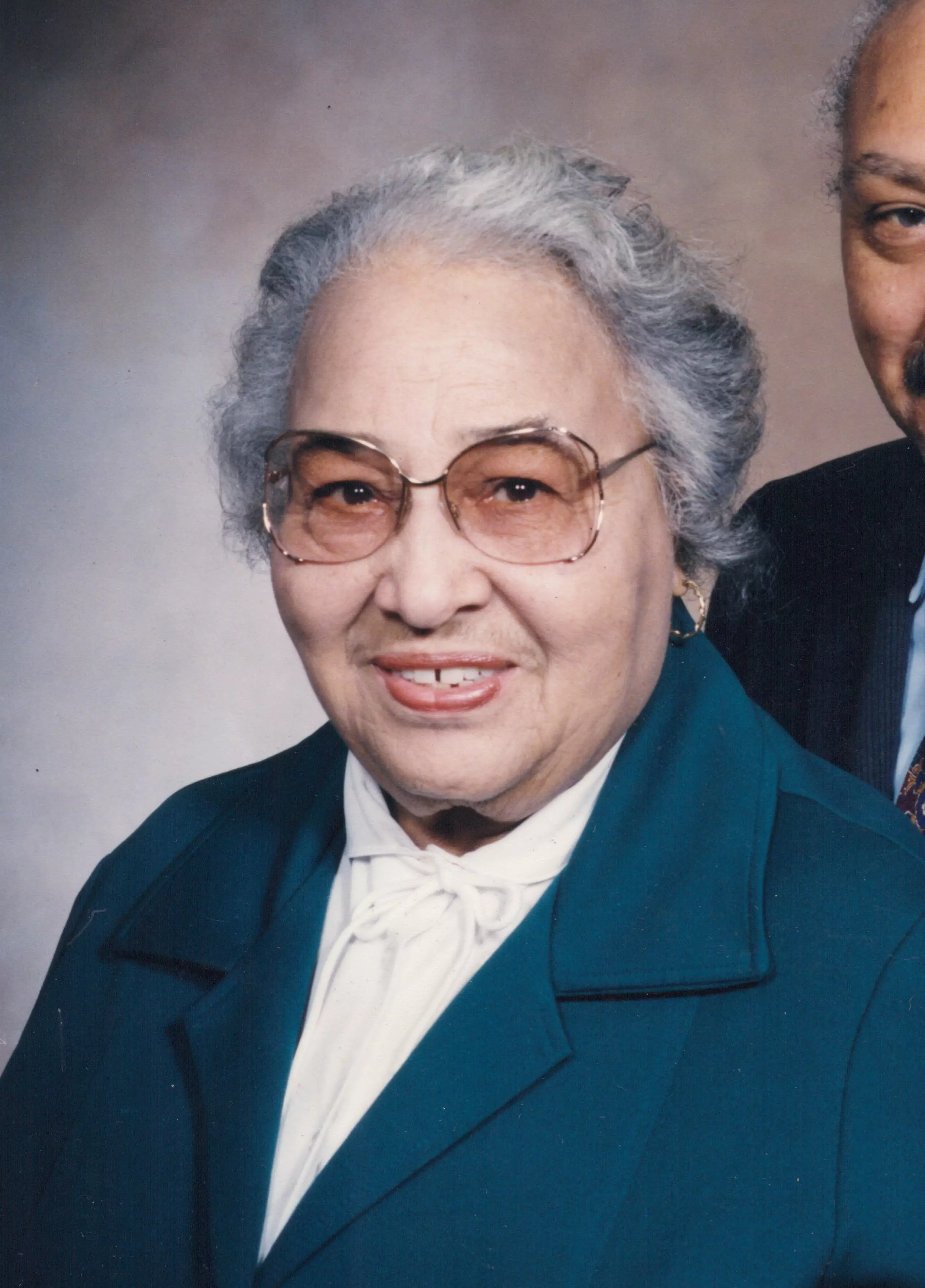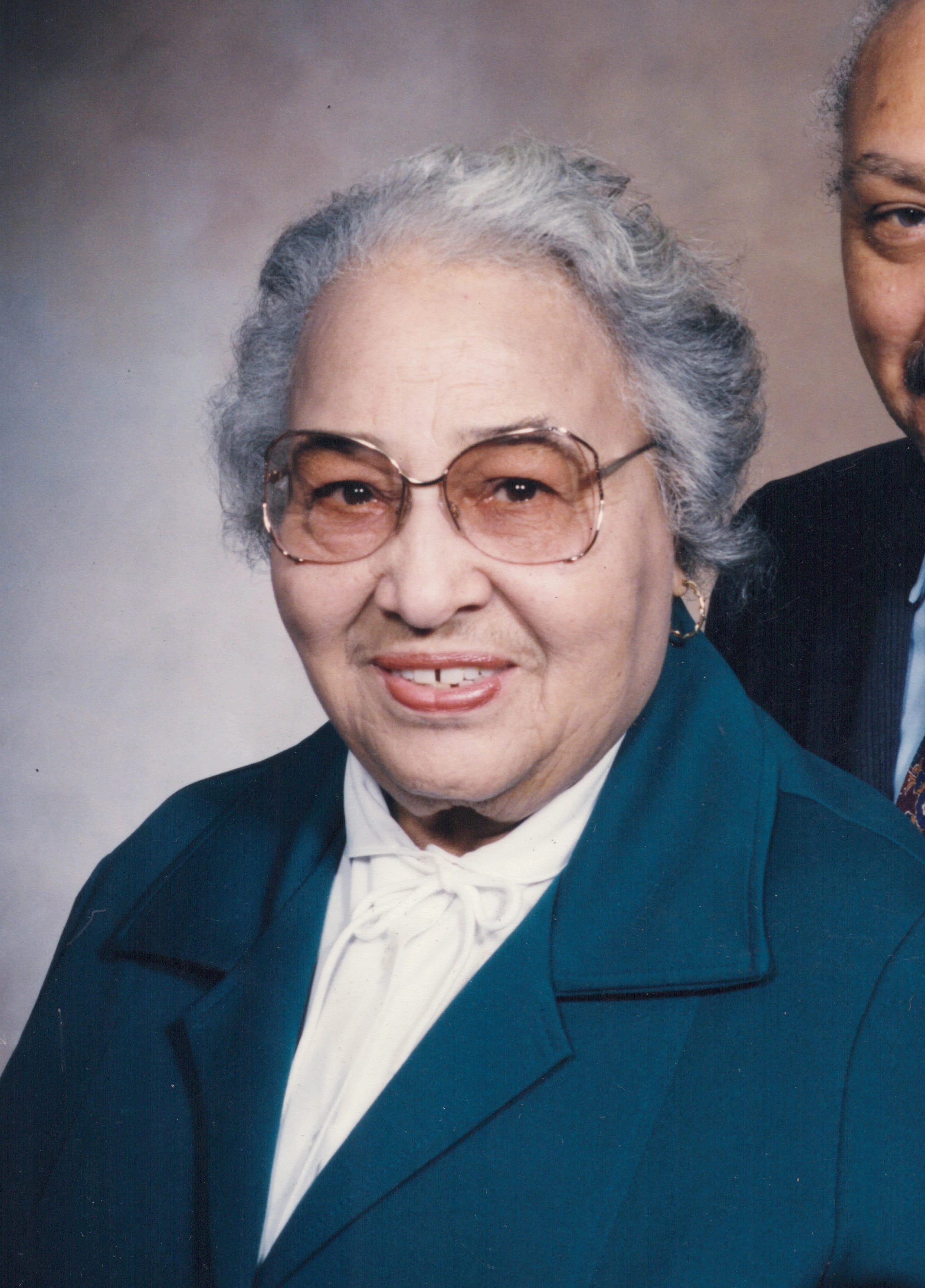Washington, Caribel
“I believe that service is the rent you pay for the space you occupy,” was Caribel Washington’s motto, as she completed a lifetime of community service.
Caribel was born on January 29, 1914 in Streator, Illinois to William Webster and May Gertrude Williams. She spent most of her life in Bloomington, graduating from Bloomington High School during the Great Depression. She married Arthur Alford Washington on December 22, 1933 and the couple had two sons, Jonarthur and Harvey.
Growing up a “second class” citizen in a racially segregated America, Caribel was always a “first class” human being. She spent most of her life in a humble home on Bloomington’s near west side, serving her church and community.
Caribel was an active member of Wayman AME Church in Bloomington, where she served in almost every church office and volunteer position. Her first local employment was with President Franklin Roosevelt’s WPA (Works Progress Administration) 1930s jobs program, assisting preschool children and working at the now gone Booker T. Washington Home. In 1946 she went to work for State Farm as a custodian and elevator operator, at a time when Black employees were not allowed office positions within the company. While in that position she was an officer and active with Service Employees Local 133.
Caribel helped break the color barrier at State Farm, becoming one of the first African-Americans to win a clerical position. She helped open night classes at State Farm so other Black employees could move up within the company and became a role model and counselor for many young people, aspiring to a better position in life.
Throughout her life, she was a continual voice for human rights and civil rights. She always did this with dignity and clear logic, and most especially, by conducting herself as an individual that everyone was comfortable with. Within the Methodist Church she was a civil rights ambassador, conducting forums and leading discussions on racial issues throughout the Midwest. In McLean County she was a clear, persistent, and consistent voice for equal treatment for all. “We were taught that everybody was equal even though we weren’t always treated equal,” she said.
In 1982 she was a founder of the Bloomington-Normal Black History Project, a model community involvement effort to preserve the stories of the local Black community. Because of that, McLean County has one of the most detailed local African American histories in the nation. She was honored with the City of Bloomington’s Martin Luther King, Jr. award in 1977, received the WJBC “Spirit of McLean County Award” in 1984, and in 1999 was the first Bloomington recipient of the Illinois Humanities Council’s “Studs Terkel Award,” along with being honored by the McLean County Historical Society that same year for the Black History Project. In 2012, Caribel was posthumously honored in the inaugural class of History Makers by the McLean County Museum of History.
After her retirement from State Farm in 1979, she continued her many community and church activities, always a clear voice for human rights and an example of an active senior who was daily involved.
She passed away on December 26, 2011 at the age of 97.

